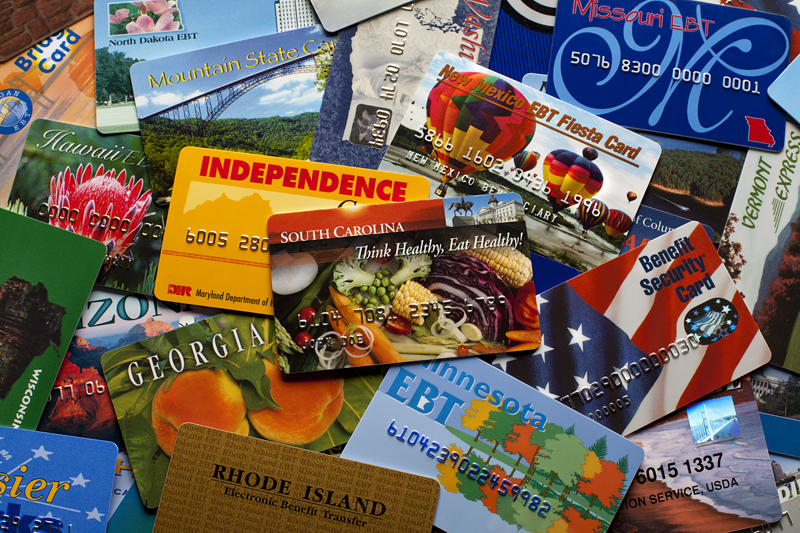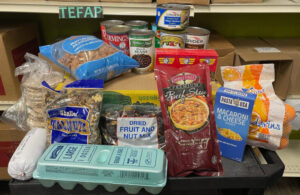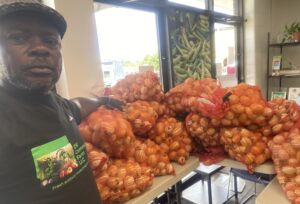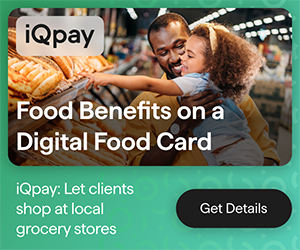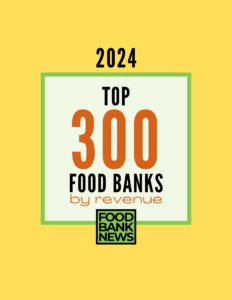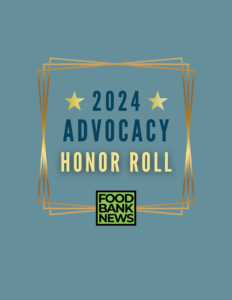SNAP is already known to be effective at achieving its goals of reducing food insecurity and poverty. Now, new research suggests that the program is also bringing down healthcare costs — reducing Medicaid fees by as much as $2,360 per person.
The new study, published in the Annals of Internal Medicine, underscores the importance of nutritious food on the public’s health. It found that eligible North Carolinians aged 65 and older who participated in SNAP were less likely to go to the hospital, long-term care, or the emergency room, leading to the substantial savings on annual Medicaid spending per person in the state.
“This is really an important study,” said Dr. Craig Gundersen, who is a member of Feeding America’s Technical Advisory Group and an endowed professor at the Baylor Collaborative on Hunger and Poverty. “The benefits of SNAP are not always accorded in the budgeting process. When we think about the costs associated with SNAP, we should also think about the reductions in healthcare costs for programs like Medicaid and Medicare.”
The research also raised questions about how to increase SNAP enrollment in qualifying populations: In North Carolina, only about 34% of qualifying seniors participate in SNAP, according to Benefits Data Trust.

That participation gap may be partly due to administrative inefficiency, according to Gundersen. Antiquated sign-up systems, processing delays, and complicated recertification processes can all become barriers to individuals who wish to take advantage of SNAP.
Gundersen said that food banks can play a critical role in closing that participation gap. He said he works closely with Houston Food Bank, which actively works to sign individuals up for SNAP benefits at food pantries.
A Food Bank News study on the advocacy efforts of food banks found that 73 of the 100 largest food banks (by revenue) engage in SNAP outreach through their websites.
“I would encourage more food banks to pursue these things—because not only does it help individuals; it also helps out food pantries,” Gundersen said. “It means that they will then have more food for those who aren’t eligible for SNAP, and those who are getting SNAP but still need a little bit more food.”
Gundersen proposed program changes that could streamline SNAP and make it simpler for individuals to access their benefits. For instance, SNAP could be reconfigured to look more like a universal basic income program, with benefit money automatically loaded onto prepaid cards. Other ways to expand outreach include providing benefits information on college campuses, or using data to launch targeted outreach for people with mental health disabilities.
In addition to its findings on SNAP participation and health outcomes, the study found that data-driven outreach and application assistance could increase SNAP participation by more than seven times.
Benefits Data Trust, a national nonprofit that provided some of the data for the SNAP study, has been providing data-driven outreach and application assistance since 2005. It uses data from Medicaid claims and other sources to identify qualifying individuals who are not receiving their benefits; contacts those individuals to inform them of their eligibility; and then provides assistance with the application process.
According to the organization, this unique outreach model has helped it to activate a total of over $7.5 billion in benefits. “As a principle, whenever you can narrow your population of who you’re trying to help, you’ll be more efficient and effective,” said Ryan Lauko, Director of Implementation and Projects at Benefits Data Trust.
Lauko said that there’s still a significant gap between eligibility and enrollment, with over $60 billion going unspent each year. “People often require additional assistance to get past some of the barriers that get in the way of enrollment, such as not knowing these benefits exist, being intimidated by the application process, or just being overwhelmed by it,” he said.
And that’s exactly where food banks can come in: “There’s always this need for people to help other people get involved and get applied for these benefits.” — Camille Bond
Camille Bond is a freelance journalist whose work has appeared on The Spoon and GreenBiz. She is a graduate of the Master of Science program at the Columbia Graduate School of Journalism.
Like what you’re reading?
Support Food Bank News